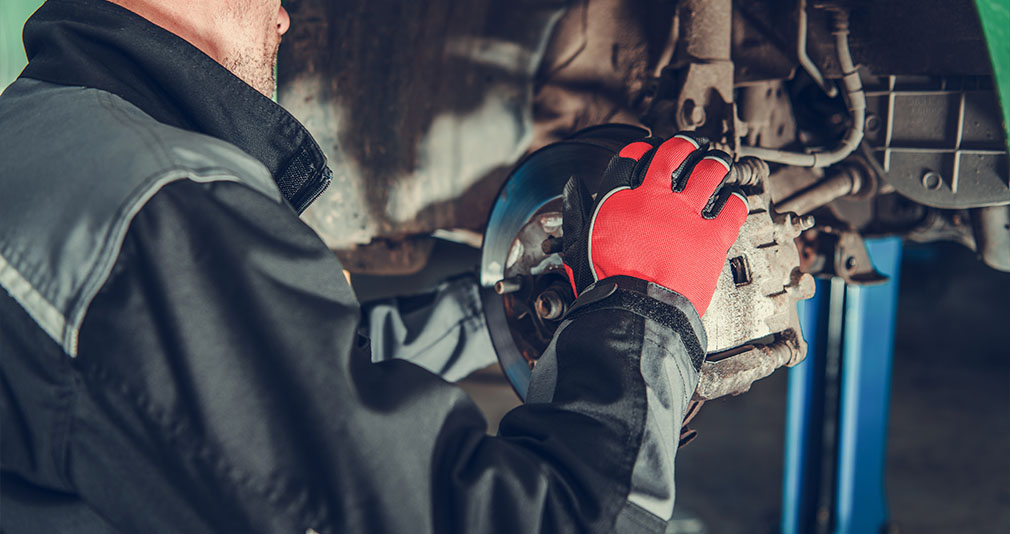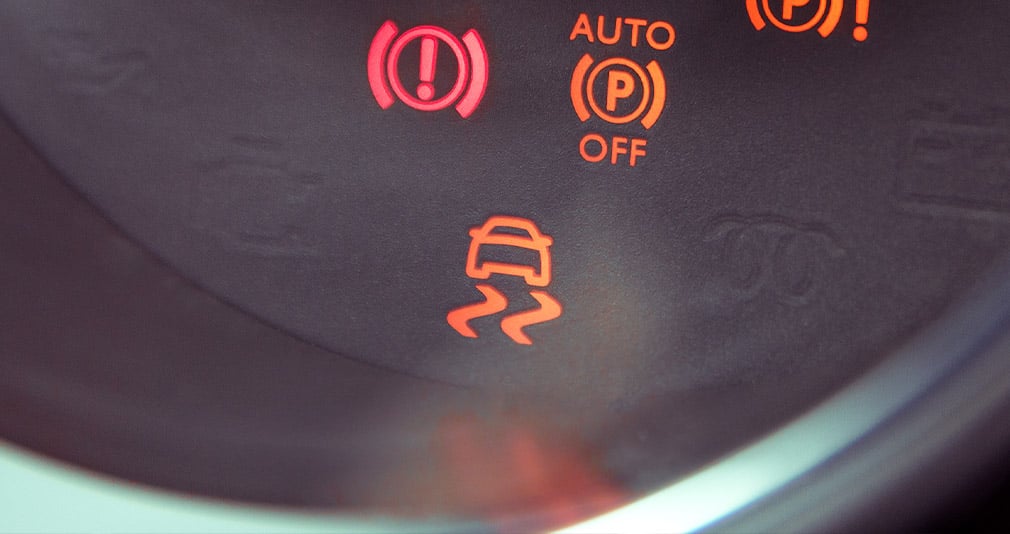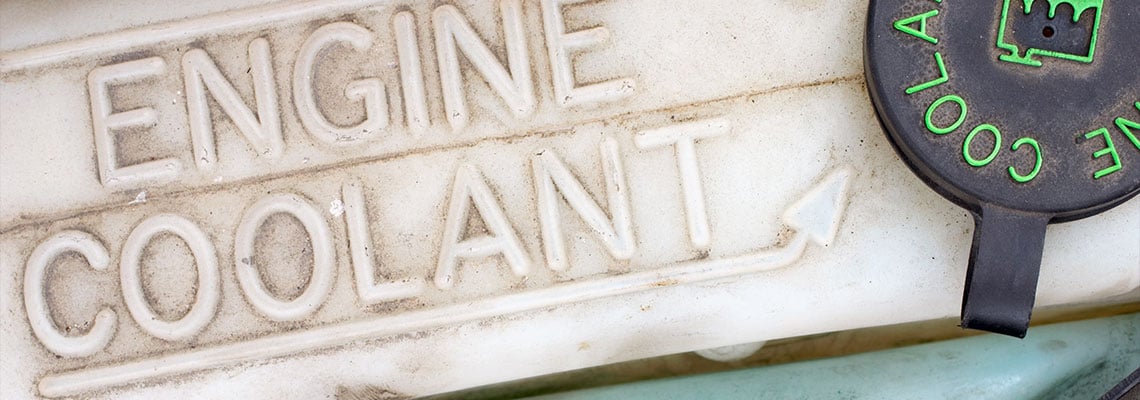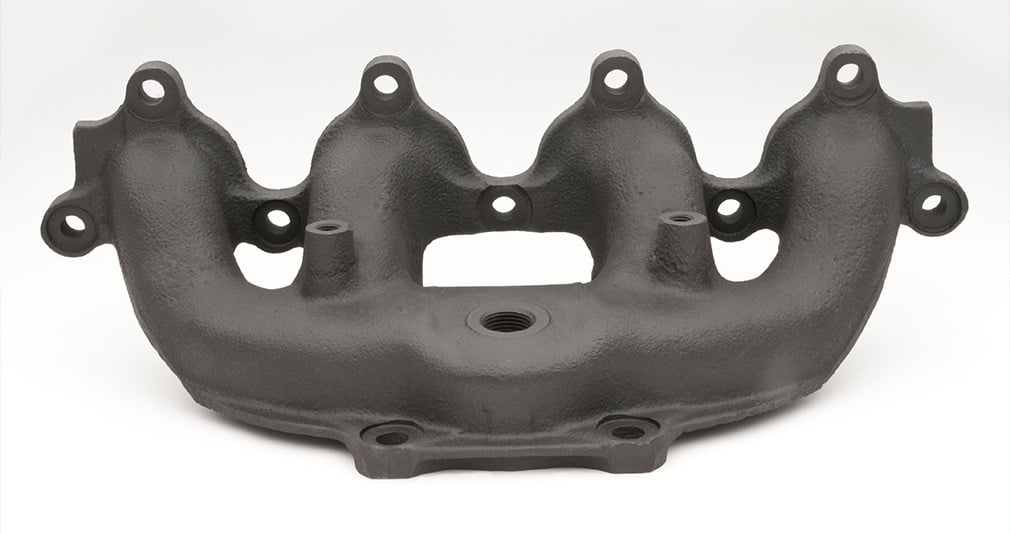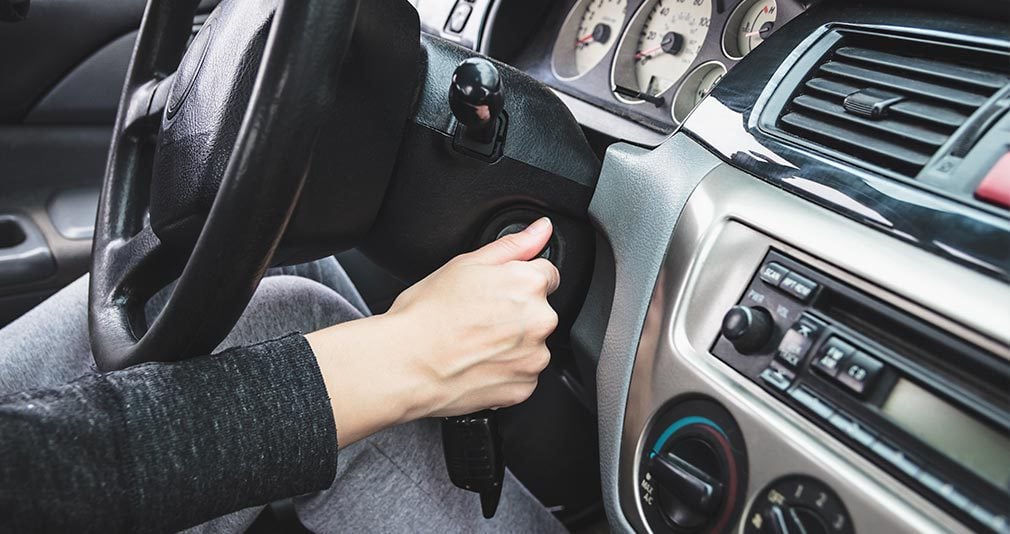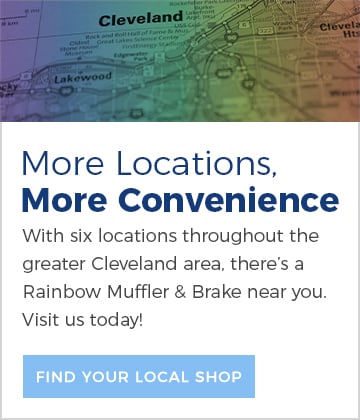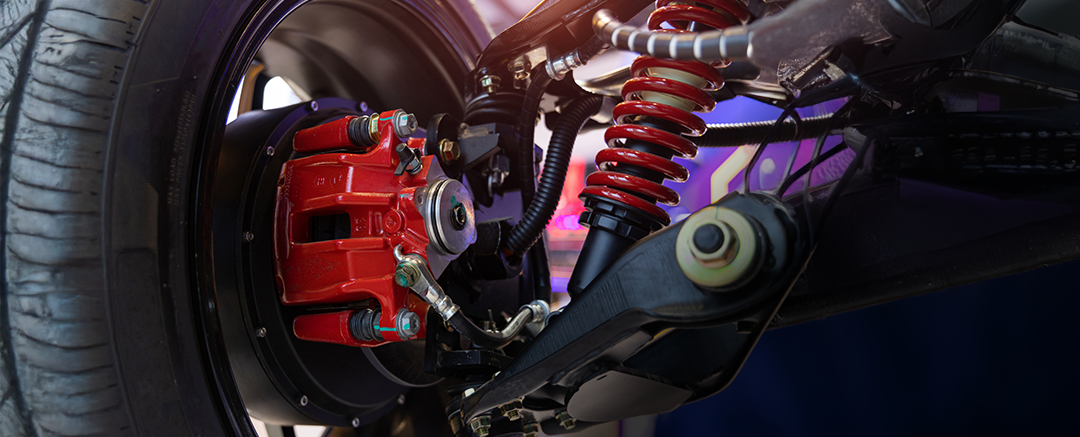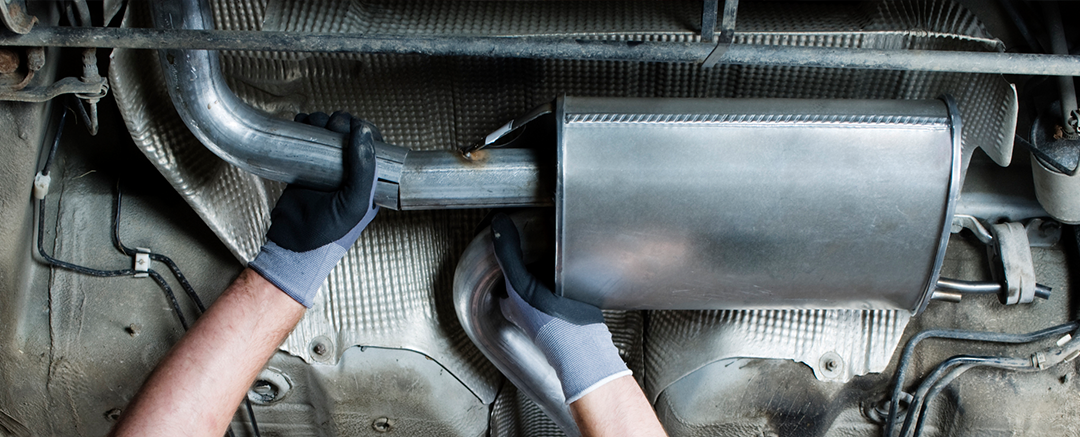Your car’s brakes are your first line of defense when it comes to avoiding crashes on the road. In fact, 300,000 car accidents in the U.S. every year are due to brake failure. Keep yourself and others safe by staying on top of brake maintenance and getting them changed when recommended by the manufacturer.
The Braking System
The brakes on your car are made up of several components, all of which need to be inspected and maintained to ensure your car is capable of stopping safely in the case of an emergency. These parts include:
- Brake lines. Brake fluid is used in hydraulic systems to transfer pressure from the pedal to the brake. It is stored in the master cylinder and moves to the calipers through the brake lines.
- Brake pads. Brake pads press against the rotor and create the friction necessary to slow and stop the car. They can be made from metal, ceramic or organic material, and have material attached to the surface that is responsible for creating the friction.
- Rotors. The rotor, which is bowl-shaped and attached to the wheel, takes kinetic energy and turns it into thermal energy, which is then absorbed and dissipated.
- Calipers. Calipers squeeze the brake pads against the rotors to slow and stop the car.
When to Get Your Brakes Changed
The right time to change your brakes depends on the make and model of your vehicle, as well as how often you drive it. The manufacturer’s guide will provide you with the most accurate timeline, so we recommend checking the manual and basing your maintenance schedule off of it.
If you aren’t sure the exact mileage on your vehicle, the general rule of thumb is to have your brakes inspected once a year, or every 20,000 to 30,000 miles. Timing for brake pad replacement is 10,000 to 20,000 miles, and the rotors should be replaced every 50,000 to 70,000 miles.
These mileage numbers can vary based on the way you drive your vehicle. If you tend to tow heavy loads or spend a lot of time in stop-and-go traffic, your brakes will wear out much faster than the ones on a car used for highway driving. Also, if you tend to brake hard and often, you’ll wear out the pads more quickly.
Warning Signs You Need to Change Your Brakes
Mileage isn’t the only guideline to use when deciding on the right time to change your brakes. Most brakes are designed to signal to you that the pads have worn too thin; this can either be a light that pops up on your dashboard or a squealing sound that is created by a “feeler,” or piece of metal that makes noise when it comes in contact with the rotor but doesn’t damage it.
Stopping a car is hard work that will eventually wear the different brake pieces down until they can’t create enough friction to work properly. The warning signs that your brake system needs maintenance include:
- Vibration
- Grinding
- Pulling
- Squealing
- Fading
- Softening of the brakes when pressed
If you experience any of these issues, the brakes need to be inspected. If you continue to drive on worn brakes, you risk damaging the rotors due to the metal of the pad grinding against them. After enough damage, the rotors will be beyond repair and will need total replacement, which is exponentially more expensive.
A car with bad brakes is no longer safe to drive. You won’t be able to stop safely in an emergency situation and risk a major car accident. It’s important to make an appointment at a trusted auto repair shop as soon as possible to have your brake system inspected and repaired.
How Much Does Changing Your Brakes Cost?
The cost of getting your car’s brakes repaired varies widely depending on your car’s make and model, as well as the severity of the issue. However, there are some general rules of thumb you can use as estimates (although we recommend getting a quote from an auto repair shop.) Creating an annual car maintenance budget can help you avoid unpleasant financial surprises.
The brake pads are the part that require the most frequent maintenance and replacement, since they physically wear down from use every time you hit the brakes. You can expect to pay between $35 and $150 for parts for all four wheels. Labor varies but tends to be $80 to $120 per axle, for a total of $115 to $270 per axle. Because pads wear unevenly, it’s a good idea to have them replaced in pairs so they last longer and work more effectively.
If the rotors are due for replacement, you can have them changed out when you get your brake pads done. Expect to pay between $30 and $75 per rotor, and between $150 and $200 for the labor for each axle, for a total of between $250 and $500 per axle.
Calipers are the priciest piece of the system to replace: A single caliper can cost around $130. If you need a complete brake repair job that includes the pads, rotors and calipers, it can end up costing between $300 and $800 per axle.
Stay Safe With Proper Brake System Maintenance
While keeping your brake system maintained can be expensive, your safety is worth every penny. It’s tempting to put off needed repairs, but in the end you’ll end up spending even more money when a small repair turns into a major issue.
If you’re unfortunate enough to end up in an accident due to poor brakes, you’ll find yourself facing higher insurance premiums — not to mention the chance you’ll need to purchase a new car altogether.
Luckily, routine maintenance can save you lots of money and stress by keeping your costs to a minimum. An expert technician will be able to identify any problems before they get out of hand, extending the life of your vehicle and putting money back in your wallet. Make an appointment at the first sign of brake trouble and stay safe on the road.

